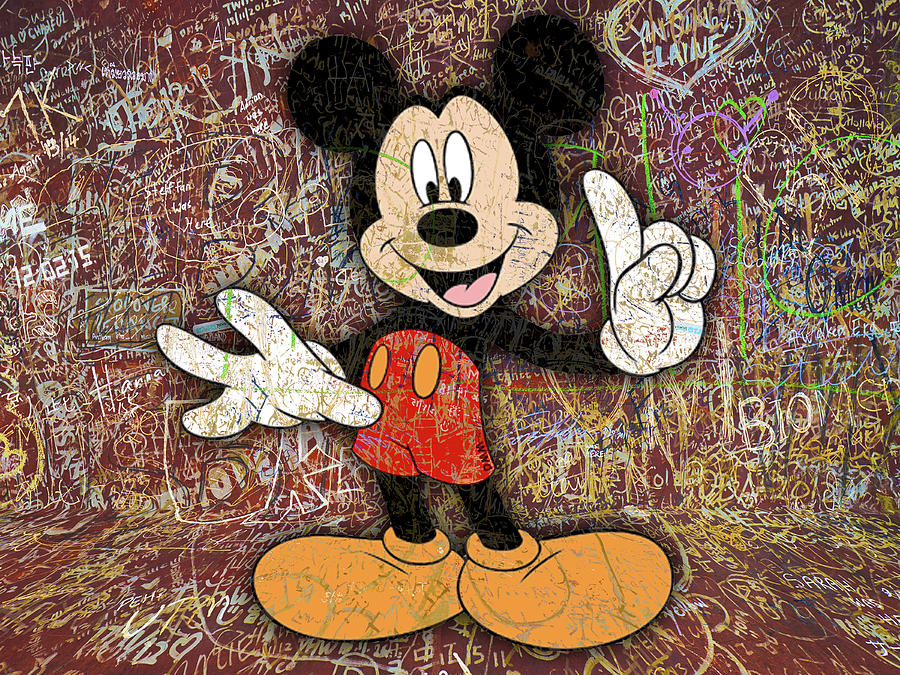We’re sandwiched between two eternities. We emerge from one eternity and unfailingly return to the other, only both are the same eternity since there is of course no such a thing as ‘two different eternities’!
The dream time we come from is the same dream time we return to. Dream time is unitary not modular! As James Carse says, there are many finite games but only the one Infinite Game. The Infinite Game – we might say – is the game of liberating ourselves from all limiting finite games, from all limiting finite structures or repeating routines and once we understand that this is possible (once we understand that there is such a thing as liberation from finite games / finite structures / repeating routines) then we also understand that there is only one liberation. There are lots of ways of holding on (i.e. lots of different patterns to hold onto) but only one way of letting go.
We emerge from freedom and we return to freedom. There’s nowhere else to come from, nowhere else to go! Once we ‘emerge’ from freedom into the world of finite structures and bounded possibilities then our return is inevitable since all finite games, all repeating routines only seem to be going somewhere when we’re trapped in them. They’re not really going anywhere but they very much seem to be. When we’re trapped in a finite game, in a repeating routine, then we have no perspective other than the perspective that is provided for us by the game, by the routine, and the ‘perspective’ provided by the game / routine isn’t any sort of perspective at all.
When we’re trapped in the finite structure we lose perspective without seeing that we have lost perspective – we have a false sort of perspective which is actually the same thing as that finite structure (or the same thing as the logic that is assumed by that structure). The finite structure contains its own type of perspective, but this perspective is nothing other than itself. What we are talking about here is ‘false perspective’, therefore – it is the perspective of a loop that we can’t see to be a loop. It doubles back on itself and creates illusions of distance when there is none. The false perspective of the finite game or routine causes us to be subject to the illusion that we are getting somewhere when we’re not. It causes us to think we’re ‘progressing’ when we’re only going around in circles.
The finite game offers us the possibility of winning, which is the unexamined code word for ‘actually getting somewhere’. Clearly winning must mean ‘actually getting somewhere’ – if it didn’t mean this then it wouldn’t mean anything! The finite game offers us the virtual possibility of getting somewhere that is outside of the game, it offers us access to a state that is independent of the game itself. This is what the attraction in winning is – it is the attraction of leaving behind the tiresome soul-destroying routine and finally ‘getting somewhere good’! The routine offers us relief from the routine, in other words, but only of course when all the dreary work is done, when all the tiresome bureaucratic hoops have been jumped through. The game offers us respite from the game, but only when the game has been won. This is why James Carse says that the paradox of all finite play is that it is play against itself (i.e. the aim of the finite game is to bring the game to an end).
When we’re trapped in the finite game, trapped in the repeating routine, then everything is about the final destination, the final outcome, only this final destination, this final outcome is a lie. It’s an ‘attractive surface’ that we keep running full tilt at, it’s a deceptive surface that seems to be leading onto something else, something that isn’t the game, something that isn’t the routine. There is however nothing on the other side of the surface (i.e. the glittering appearance) other than more of the same, more of the same. That’s all that a finite game is, that’s all that a repeating routine is – it is more of the same, more of the same, followed by more of the same again as if we hadn’t got enough of it. There is never any genuine relief, only the false promise of relief…
The thing that we haven’t the perspective to see therefore is that there isn’t a final destination, that there isn’t any way out of the system. The so-called final destination is just the preliminary to starting the cycle all over again – ‘winning’ isn’t a state that exists outside of the game, it’s just a lure than exists within the game. It’s the entrance to a revolving door. Actually, the finite game (or repeating routine) is a self-perpetuating illusion – it’s a self-perpetuating illusion because it’s only real on its own arbitrary terms. It’s not just the promise that the finite repeating structure will one day – if we work hard enough at it – take us beyond itself that is an illusion, the structure is itself an illusion, the structure is itself is unreal. It exists only in its own limited terms, as we have said, but the thing about this is that limitations don’t really exist. They only exist if we say they exist, they only exist if we agree to pretend that they exist. So because the basic building blocks (the limitations) aren’t real, neither is anything we make out of them…
There is only the Infinite Game (i.e. there is only freedom) so when we find ourselves in the limited, unfree world between one freedom and another (the unconditional freedom we emerge from and the unconditional freedom we return to) we’re actually ‘emerging’ into an unreal world. There is no ‘in-between state’ between one eternity and another (the one we came out of and the one we are going to return to) – there’s only the one eternity with no interludes in it. If we think that there is an interlude then we’re mistaken – that’s just a ‘local illusion’. That’s just a hallucination caused by lack of perspective, in a universe that is entirely made up of perspective. We emerge into linear time from one eternity and return to that same eternity; only we never really left because there’s no such thing as ‘linear time’!
We can also express this perplexing situation in terms of Joseph Campbell’s ‘Hero’s Journey’, which is explained here by Campbell in this quote taken from the Wikipedia page –
A hero ventures forth from the world of common day into a region of supernatural wonder: fabulous forces are there encountered and a decisive victory is won: the hero comes back from this mysterious adventure with the power to bestow boons on his fellow man.
Our usual way of understanding things is to say that there is the everyday life (which isn’t the Hero’s Journey) and there is The Journey itself, which is when we move beyond the safe, secure realm of consensus reality, which is the finite game, which is the repeating routine that we have created for ourselves. This is how Campbell himself frames the model. When we refuse the ‘call to adventure’, and proceed to ignore the possibility of responding to this call, then we enter instead into the negative adventure, which is the inverse of the Hero’s Journey, the exact antithesis of it. The ‘negative adventure’ is, therefore, the same thing as linear time, which is also the same thing as what Campbell calls ‘the world of common day’. The twist here is therefore that linear time (or the everyday world) isn’t actually real. We don’t actually get to be real unless we heed the call!
We’re afraid to embark upon the Hero’s Journey, naturally. It takes a hero to embark on the Hero’s Journey. We’d rather cling to what we know rather venture forth into what we don’t know, even if this refusal brings nothing but unending misery and frustration. We’re caught in the routine, we’re caught in the repeating pattern, we’re caught in the finite game. Turning over and over again, struggling and striving, struggling and striving, and yet never ever getting anywhere. We’re unreal, but we don’t know it. It’s fruitless, it’s futile, it’s circular, but it’s what we know. Or we could say, we caught up linear time, hollow time, ‘getting nowhere time’, strung out indefinitely between two eternities…
Linear time seems to go on forever when we’re caught up in it. It stretches ahead of us into the infinite distance, as well as receding infinitely far behind us. It’s the longest road there is. Awe-inspiring as the vista of linear time might seem when we’re seeing it from its own point of view, it is an inferior analogue of eternity, a cheap copy or parody of the original. Linear time is an exercise in empty seriality – the same statement is repeated over and over again, as if trying to make up for lack of quality in terms of sheer inexhaustible repetition. If eternity is quality without quantity, linear time is the inverse of this – it is infinitely expandable polystyrene foam, so to speak. It expands and expands forever, but never gets anywhere. It is like ‘talking for the sake of talking’ – the thing about talking for the sake of talking being that as long as we keep on with it, and as long as we never pay too much attention to what we’re actually doing, we can happily ‘go on forever’ even though we haven’t really got anything worth saying. In the words of Meher Baba –
Whether it manifests as Creation or disappears into the Oneness of reality, whether it is experienced as existing and real, or is perceived to be false or non-existent, illusion throughout is illusion. There is no end to it, just as there is no end to imagination.
Saying that time is sterile or that time is illusion doesn’t seem right to us, however. Saying that time is made up basic ‘unit’ which is repeated over and over again, giving the impression that something is happening when it isn’t, giving the impression that ‘time is moving on’ when it isn’t, is rather hard to take. We might argue that what Henri Bergson calls becoming also takes place in time so it isn’t all just about empty linear progressions. We might argue that there is also a ‘revealing’, an ‘unfolding’ of the new that happens and so everything is not just a sterile ‘repeating of the old’. This is equivalent to saying that the universe is not a simulation since there can be no unfolding of the new in a simulation. If there was any genuine unfolding going on then it wouldn’t be a simulation! So the question becomes, is the universe a simulation (i.e. a formal system) or is it not? Is there any reality in it?
‘Time is invention and nothing else’, says Henri Bergson. And yet ‘To exist is to change’ as Bergson also says. We can try to clarify this contradiction by thinking in a psychological way rather than trying to imagine the universe proceeding mechanically along a linear time-line, in the absence of consciousness, which is of course the way we usually think of time. From a psychological perspective – as we have already said – time has a peculiarly deceptive property in that whilst the period of time ahead of us may seem immense (as if it were very sizeable quantity of something, like ten million Euros safely lodged in the bank), when we get to the end of this period of time it is as if no time had actually passed. We are left with the feeling that we have been cheated, as if we have been short-changed. What happened to all that time we thought we had? How did it get to slip away like that?
When we get to the end of the allotted span of time it is as if no time had passed. We get the feeling that time is actually an illusion; that actually it doesn’t really exist at all. It’s like a dream we wake up from. The thing about time is that it only gets to feel substantial in anticipation of having a lot of it, not in the actual lived experience – in the lived experience of it time is like the golden grains of sand that slip through our fingers in Edgar Allen Poe’s Dream Within a Dream.
We can’t really ‘bank on time’ therefore, in the way that we think we can – that would be like banking on the water that we have stored in a sieve! Yet having said all this, there is also a way in which time can unexpectedly ‘open up’ for us and prove to contain far more than we thought it ever could do. Time can seem to slow down, in other words, and there can then seem to be a lot more in it than we would have thought. As Leonardo Da Vinci says, “Time stays long enough for anyone who will use it.” So what this means is that time can – paradoxically – do two things – it can either rush past without us even seeing it go and leave us feeling cheated, or it can somehow ‘stay’ for us, and reveal an unexpected depth or interiority. Thus the present, as C.S. Lewis writes, “…is the point at which time touches eternity.” The crucial point is therefore whether we are in the present – or whether we are, like deluded fools, banking on this illusory store of linear time that we have in the future!
We could say therefore that it is not time that is passing us by but eternity! The present moment (which has the ‘secret identity’ of being eternity) is passing us by. It is eternity that passes us by without us noticing that anything has passed us by. We don’t have any conception of eternity anyway, so we’re hardly going to miss it! The way we think of linear time is of an endless succession of present moments, without focussing on what each present moment contains ‘inside of it’, so to speak. We think of time as being the sum of all these moments, and we very much like having the ‘quantity’ there to bank on, but we skim over them so quickly that we barely get a feel for the actual quality. We get the quantity but not the quality, in other words, and it is as if we have made the assumption somewhere that if we have enough of the former then this will make up for there not being any of the latter! We could say that linear time is made up an endless succession of present moments but the truth is of course (as C.S Lewis suggests in the quote given above) that the present moment isn’t in time. It exists ‘outside of time’, at right angles to time, which is another way of saying that when we look at linear time from the perspective of eternity, we see that there’s no such thing…
When Da Vinci talks of ‘using time’ we may be sure that he doesn’t mean ‘exploiting’ it, or ‘wringing value’ out of it by either cunning or brute force, which is our usual modus operandi. He is not talking about being busy in a goal-orientated or purposeful way, but rather about being creative. When we work creatively then time will stay long enough for us to use it, and when we are goal-orientated it will pass us by. Time won’t just ‘pass us by’ when we’re being goal-orientated or purposeful, we will wish it by! We will wish it by because we are in a hurry to reach the goal, because we are in a hurry to get where we are aiming at. When we are creative then we could say that we are ‘reaching right down into ourselves’, only this isn’t the regular self, the routine self, the purposeful or rational self that we’re talking about here – it’s the Self that exists outside of time and space, the ‘Eternal Self’ that Vedanta refers to as the Atman. This is the self we return to when we wake up out of the hollow serial dream of linear time!
The rational or purposeful self (which is who we see ourselves as being in linear time) isn’t who we are at all. It’s an idea that we get very caught up in that hasn’t got anything at all to do with who we really are. So we could say that this everyday (conditioned) sense of ‘who we are’ – which is all we generally know – is the ‘false self’, the ‘fictional self’, the serialized (or ‘regular’) self which exists in linear time. [“It is only in the world of objects that we have space and time and selves.” says T.S. Eliot.] We could however develop this statement further by pointing out that, since linear time is unreal then it must be the case that this self too is unreal. The whole thing is unreal – there’s no such thing as linear time, and there’s no such thing as the self which exists in it. ‘It never happened’. [Although to say that it never happened implies the existence of time within which things or events can happen, and so this too is misleading.]
Image – wallpaperdog.com





